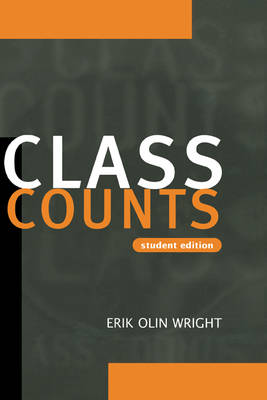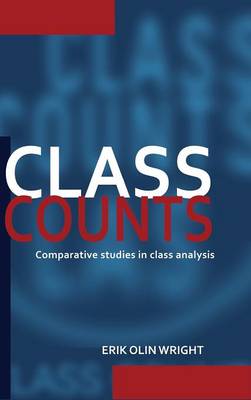Studies in Marxism and Social Theory
2 total works
This textbook provides students with a lively and penetrating exploration of the concept of class and its relevance for understanding a wide range of issues in contemporary society. Erik Olin Wright treats class as a common explanatory factor and examines three broad themes: class structure, class and gender, and class consciousness. Specific empirical studies include such diverse topics as class variations in the gender division of labour in housework; friendship networks across class boundaries; the American class structure since 1960; and cross-national variations in class consciousness. The author evaluates these studies in the light of expectations within the Marxist tradition of class analysis. This Student Edition of Class Counts thus combines Wright's sophisticated account of central and enduring questions in social theory with practical analyses of detailed social problems.
Class Counts combines theoretical discussions of the concept of class with a wide range of comparative empirical investigations of class and its ramifications in developed capitalist societies. What unites the topics is not a preoccupation with a common object of explanation, but rather a common explanatory factor: class. Four broad themes are explored: class structure and its transformations; the permeability of class boundaries; class and gender; class consciousness. The specific empirical studies include such diverse topics as the sexual division of labour in housework, gender differences in managerial authority, friendship networks in the class structure, the expansion of self-employment in the United States in the past two decades, and the class consciousness of state and private-sector employees. The results of these studies are then evaluated in terms of how they confirm certain expectations within the Marxist tradition of class analysis and how they pose challenging surprises.

